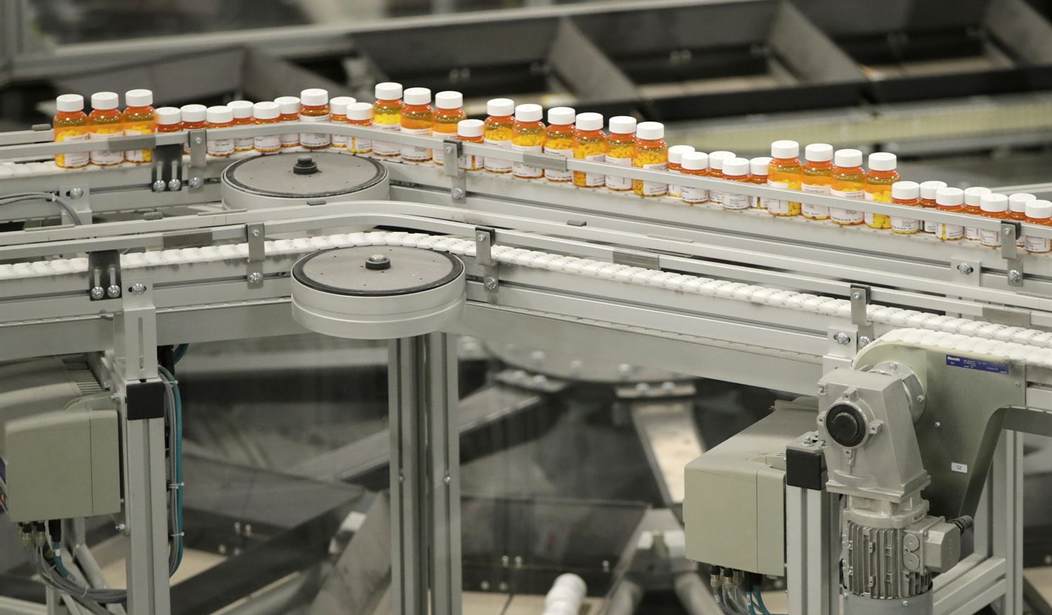According to the Centers for Medicare and Medicaid Services (CMS), prescription drug expenditure in the United States amounted to a total of $358.7 billion in 2020. It’s estimated that Americans pay around $1,200 each year for prescription medication, well above other comparable countries. One significant cause of high drug prices are the Pharmacy Benefit Managers (PBMs).
PBMs play a significant role in inflating the cost of prescription drugs. The business model of PBMs is structured around preserving incentives that increase rebates which leads to PBMs retaining more profit. According to a new Grand View Research report, PBMs' market size is projected to reach $744.6 billion by 2026. In 2017, global revenue for PBMs was nearly $356 billion.
Recognizing the problems caused by PBMs, states have started to enact significant reforms to curb the power of PBMs. According to the National Academy for State Health Policy, since 2017, 46 states have implemented regulations targeting PBMs. Reforming PBMs, rather than establishing price controls or allowing medications to be imported from Canada, is essential for lowering drug prices.
While states have begun to take meaningful steps toward reform, PMBs remain unregulated at the federal level. Thus, PBMs’ business structure has a significant impact on millions of Americans. The lack of federal oversight allows PBMs to maintain leverage in the rising cost of drugs and reduce most Americans' access to affordable drugs. Federal oversight is required to effectively lower drug prices and minimizes PBMs' deceptive business practices across every healthcare sector.
Recommended
PBMs operate as middlemen between health insurance companies and pharmaceutical companies. In this role, PBMs can acquire significant rebates from drug manufacturers, lowering the cost of medication. Unfortunately, these savings are often not passed on to consumers, leaving patients paying more for their drugs. A new Schaeffer Center white paper found that, on average, a $1 increase in rebates was associated with a $1.17 increase in list price. Since PBMs do not disclose their rebates, they do not have to pass the savings onto consumers in the form of lower costs.
These rebates have led to the establishment of formularies that determine which drugs insurance companies cover. Medications not included on the formulary will not normally be covered by insurance. One of the major anti-consumer effects of formularies is that patients lose access to alternative medication, such as generics and biosimilar, that are normally cheaper.
States are currently utilizing different approaches to curb the ability of PBMs to inflate drug prices. Connecticut and Alabama, for example, both banned PBM-imposed gag clauses that prevented pharmacists from sharing lower-cost options with patients. These bills seek to help consumers access more affordable drug options and save a significant amount of money on their prescription drugs.
A second approach requires PBMs to be licensed by the states. Twenty-seven states require PBMs to be licensed. For example, Alabama, Alaska, Arkansas, and Florida require PBMs to be licensed by state authorities. Requiring PBMs to be registered enhances patient welfare because states are able to suspend or revoke a license of a PBM that is unnecessarily inflating prices.
The final approach mandates disclosure of a drug's out-of-pocket costs with and without insurance and the availability of generic options, and Arizona's HB 2166 does just that. This approach helps consumers by increasing transparency of specific prices, costs, and rebates, and with this knowledge, patients will be better able to shop around for the lowest drug cost. Additionally, this approach will allow policymakers and providers to better understand price inflation from PBMs.
Currently, PBMs operate with no federal oversight, giving them significant discretion in setting prices with no consequences, particularly when it comes to rebates. Federal legislation regulating PBMs will substantially impact the states’ reforms because they will ensure every patient can access drugs for the lowest possible price regardless of residence.
PBMs play a key role in shaping access to prescription drugs, price, and consumer savings. While states have made important steps in reforming PBMs, it's time for an overdue federal reform to level the playing field for drug companies and patients. Without federal reform, PBMs will still be able to inflate prices for patients and limit patients' supply to affordable drug alternatives that have fewer rebates.
Foday Turay writes on policy for the American Consumer Institute, a nonprofit educational and research organization. For more information about the Institute, visit www.TheAmericanConsumer.org or follow us on Twitter @ConsumerPal

























Join the conversation as a VIP Member